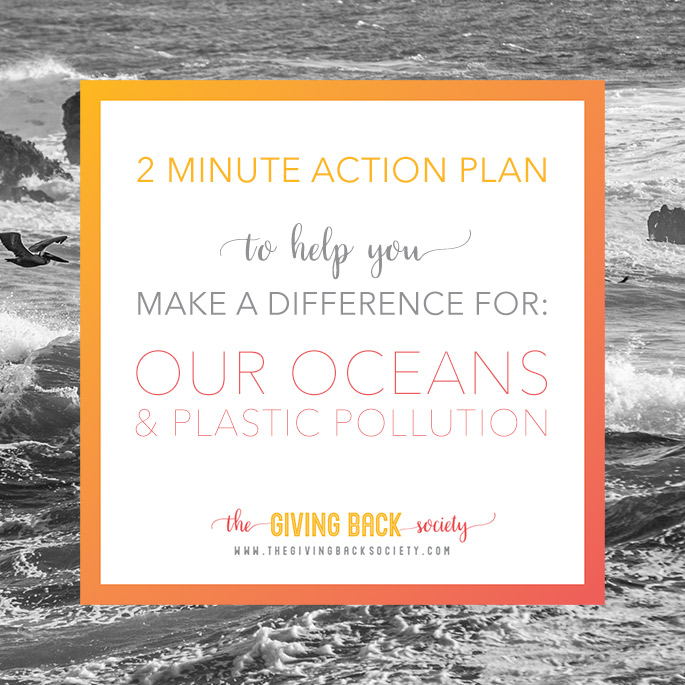THE PROBLEM:
When talking about plastic pollution in our oceans, let’s start here: If we don’t make any changes to our current habits, the oceans will have more plastic than fish by 2050. (Source) Yes, more than 8 million tons of plastics make their way into our oceans every year. (Source) Marine debris comes from various sources, but most of it originates on land — plastics in landfills are blown into rivers which make their way to the open water, boats that dump garbage off board or beachgoers who leave things behind. (Source)
But, why focus on just plastics? There are a few reasons. First, plastics are the cause of more than half of marine debris (thought to be as high as 60-80%). (Source) Second, plastic does not break down. Instead, it breaks apart into small fragments in the ocean (often referred to as Plastic Soup), which is then mistaken for food and has worked its way back up the food chain into our meals. (Source) And lastly, we keep making plastic at an alarmingly increasing rate and about 50% of it is only used once and then thrown away. (Source)
You should know: The implications of our actions are causing major concerns for seabirds, fish, seals, whales, manatees and sea turtles, to name only a few. From entanglement to ingestion, our pollution is causing injury and death.
Not so fun fact: There are over 5 trillion pieces of plastic in our oceans and only 400 billion stars in the Milky Way. We have 13 times more pieces of plastic in our oceans than stars in our galaxy. (Source)
The good news is that this change is almost entirely in our hands. Let’s fix this problem!
2 MINUTE ACTION PLAN:
Don’t Litter. This seems like something we shouldn’t have to even mention, but sadly, we witness people littering all of the time. It takes a matter of seconds to grab your soda bottle and toss it into a recycling bin. Don’t see a bin? Bring the bottle home with you and dispose of it correctly. 14% of all litter comes from beverage containers. (Source)
You Should Know: Cigarette filters are plastic. They’re made of non-biodegradable cellulose acetate (yes, that’s a plastic) and are the most common form of litter found on beaches worldwide. (Source) So, pick up your butts, folks.
Bonus: Just say no to balloons. While the balloon itself might not be plastic, the ribbon usually is and balloons travel far and wide before coming back down to land. In the oceans, they cause problems for marine life who mistake them for jellyfish and end up ingesting them (which can block their digestive track and cause them to starve to death). Others, including seabirds, can get entangled in the ribbon leading to injury or death. Who needs to celebrate with balloons when that’s the potential aftermath?

